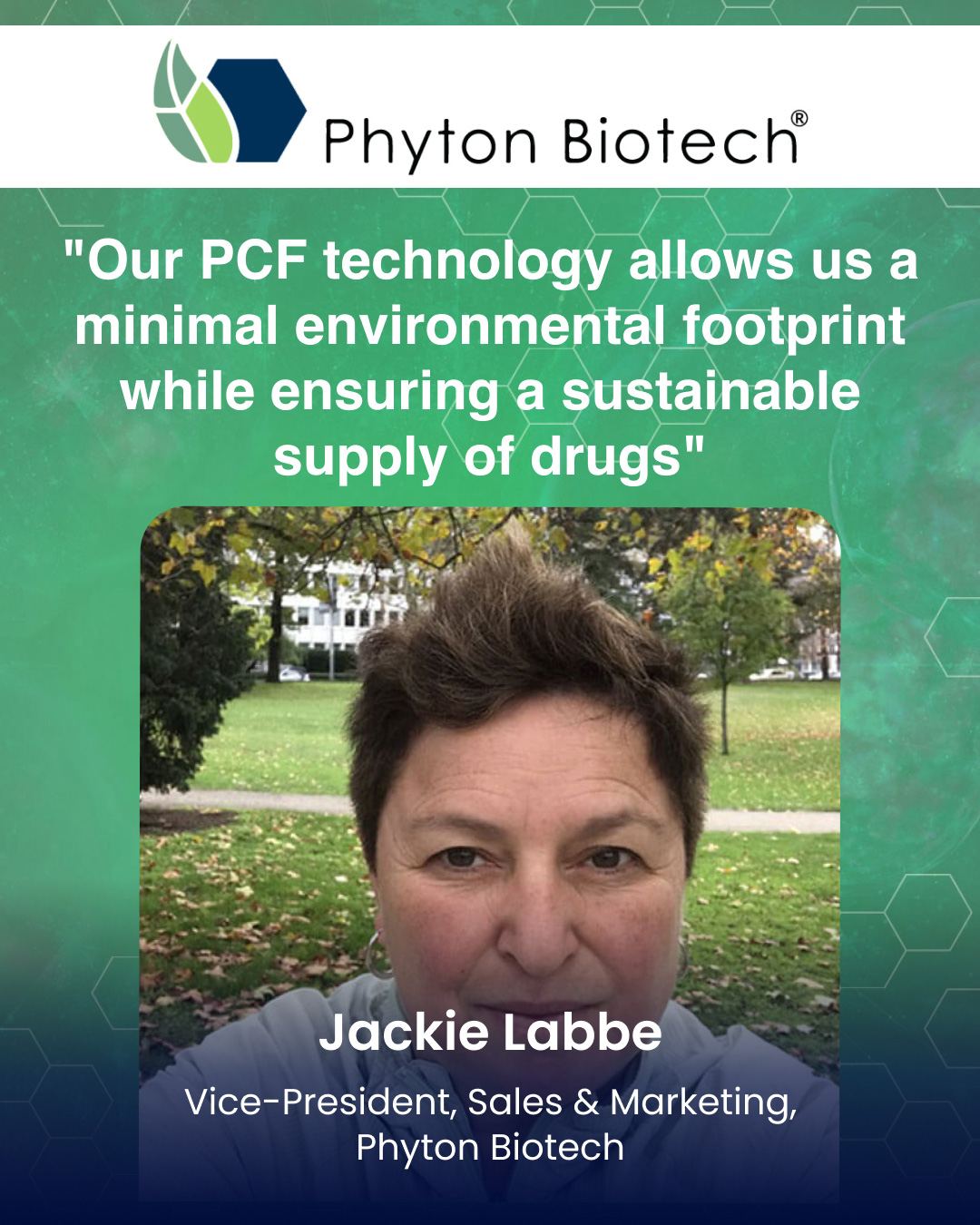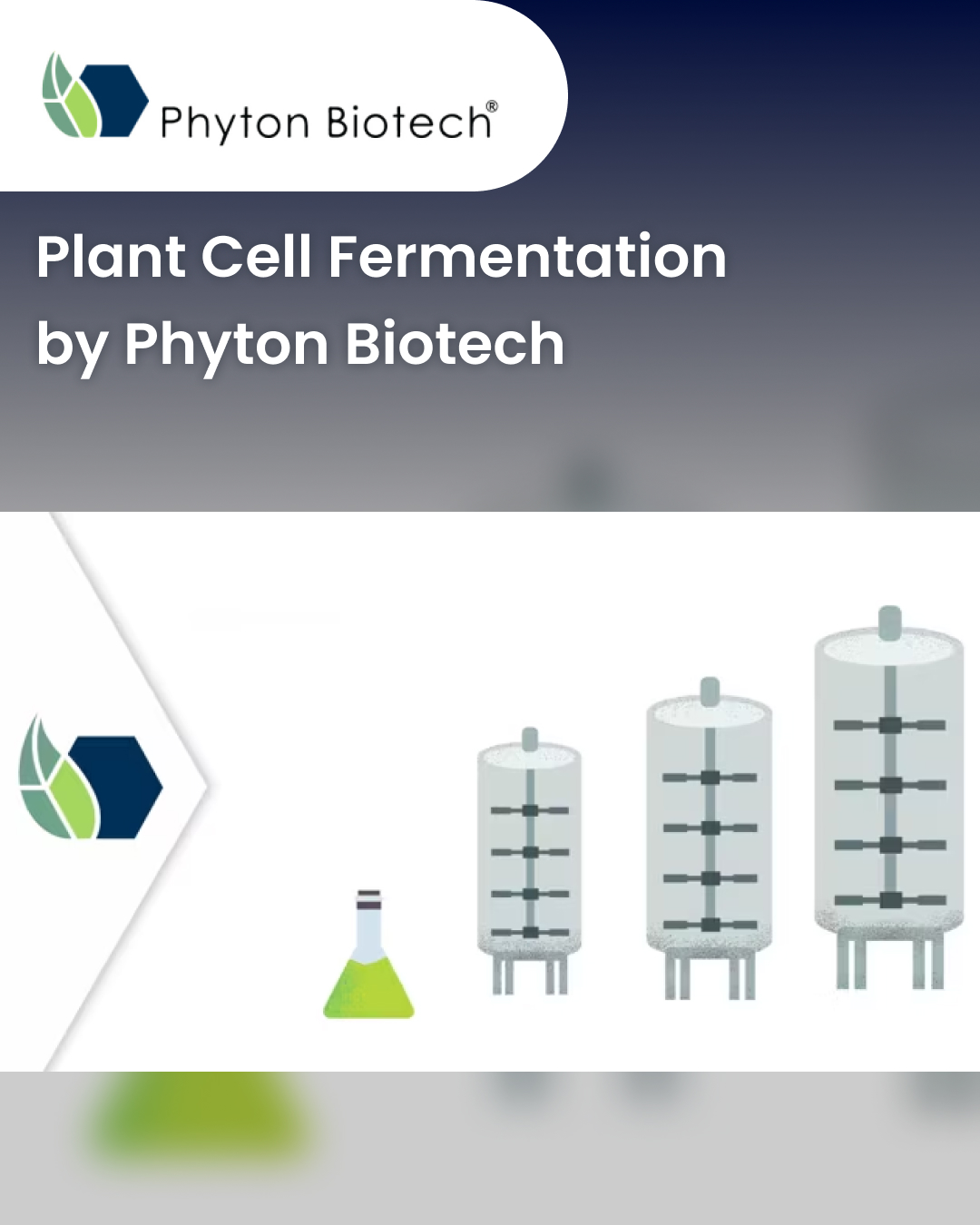
#SpeakPharma with Phyton Biotech
2019-11-12
Impressions: 2892
This week, SpeakPharma interviews Jackie Labbe, Vice-President, Sales & Marketing, Phyton Biotech, a global supplier of high-quality active pharmaceutical ingredients (APIs) made through plant cell fermentation (PCF). Paclitaxel and docetaxel are both taxanes. The two APIs have historically been derived from Pacific yew trees, and are used in the treatment of cancer. In the interview, Labbe talks about Phyton’s PCF technology, and how its scalability makes it a cost-competitive and sustainable alternative to traditional extraction manufacturing processes.
— What is plant cell fermentation technology? How do you use it to make biotech APIs? And how is this technology cost-competitive?
Plant cell fermentation (PCF) technology is the ability to use plant cells to make active chemical compounds that are typically extracted from plant biomass. Phyton uses this technology to produce various active pharmaceutical ingredients (APIs), while assuring a sustainable supply chain that does not depend on variations in climatic conditions, and also doesn’t lead to an exploitation of precious natural resources. The technology is scalable, while also being cost-competitive.
Using our PCF technology, we produce various cancer-fighting molecules like paclitaxel and docetaxel. Recently, we also entered into partnerships to develop various other compounds to ensure a sustainable supply of many new chemical entities.
Since PCF technology is scalable, Phyton is able to expand production as and when required. This way, it is able to take advantage of economies of scale when our demand increases.
The scalability of the PCF technology, along with its lack of dependence on the natural plant raw materials, makes it a cost-competitive alternative to traditional extraction manufacturing processes.
— How has PCF helped overcome the supply chain challenges of taxanes and other natural products?
Over the years, the growing demand for taxane APIs created significant pressure on the yew trees from which a key building block of these APIs had historically been derived. The over-exploitation of natural resources got to a point where trade of the Himalayan yew species was severely restricted.
Phyton Biotech developed and applies sustainable and “green” chemistry manufacturing solutions for phytochemicals using PCF, which now serve the pharmaceutical as well as the traditional Chinese medicine (TCM), cosmetic, agricultural and food ingredient industries.
By utilizing our revolutionary PCF platform, we are able to offer a time, risk, and cost-balanced path to commercially viable production processes.
With certified GMP facilities in Germany and Canada, Phyton combines highly developed technology and quality that meets the needs of its global customers.
We have a successful track record of developing and implementing innovative contract development solutions for clients around the world.
Since Phyton has a yew tree cell bank, the company has complete control over the key starting ingredient. This allows Phyton to function independent of cost fluctuations that may be attributed to starting ingredients used in traditional paclitaxel manufacturing process. The same principle applies to other natural products developed via PCF.
— Tell us a little about the history of taxanes.
The history of taxanes dates back to 1962, when a bark from the Pacific yew tree (Taxus brevifolia), was collected as part of the US National Cancer Institute (NCI) natural products screening program.
Samples derived from this bark showed cytotoxic effects and it was not until 1977, when the NCI was able to confirm anti-tumor activity in mouse models. The active molecule was paclitaxel. It later became available under the brand name Taxol.
Subsequent research has shown that taxanes worked in a completely different way from other cytotoxic drugs.
Paclitaxel is now included on the World Health Organization’s Model List of Essential Medicines.
While initial commercial production of paclitaxel was achieved through direct extraction from the Pacific Yew, over time it became possible to manufacture the API using a precursor of paclitaxel, 10-deacetyl baccatin III, which was more widely available. In December 1992, the FDA approved Taxol for the treatment of ovarian cancer.
— What are some of the regulatory challenges you face? And how are you able to comply with the regulatory standards and GMPs?
Our paclitaxel is produced according to good manufacturing practices (GMPs) from the moment we remove a vial containing plant cells from the cryobank for production.
GMP is continued all the way through the fermentation and purification process, and until it is shipped to our customers as a finished API. Both our paclitaxel and docetaxel are produced according to the United States Pharmacopeia (USP) and the European Pharmacopoeia (EP) and our manufacturing facilities have been inspected and approved by all the leading global health authorities.
Our APIs are also supported with Drug Master Files and Certificates of Suitability and we have successfully demonstrated to regulators the consistently high quality of our products.
— What are your future plans? How do you plan to take the PCF technology forward?
Our aim is to expand the number of products produced by applying our plant cell fermentation to products in niche markets across pharmaceutical, traditional herbal medicines, food and nutrition and cosmetics.
— In a world where sustainable supply of drugs is a big challenge, how can PCF help?
Excellent question. As you are aware, we are the global leaders in specialty fermentation, with the knowhow, expertise, and infrastructure to develop, scale up, and commercially manufacture phytochemicals and recombinant proteins via plant cell fermentation.
PCF is definitely one of the ways to produce some drugs sustainably because the source of the active ingredient is produced independent of plant biomass.
As I mentioned before, PCF is scalable, so our entire production can be scaled up or down as needed with very minimal effort. This characteristic of our PCF technology makes us have a minimal environmental footprint while ensuring a sustainable supply of drugs that are cost-competitive.






